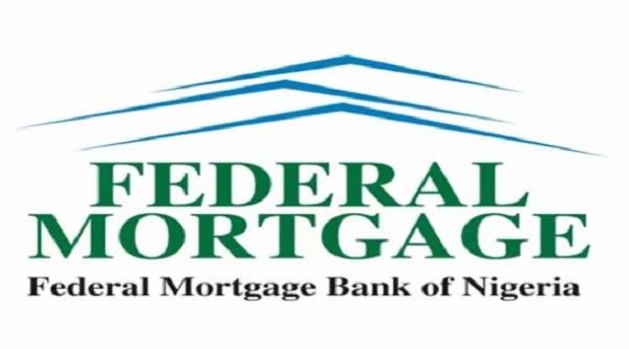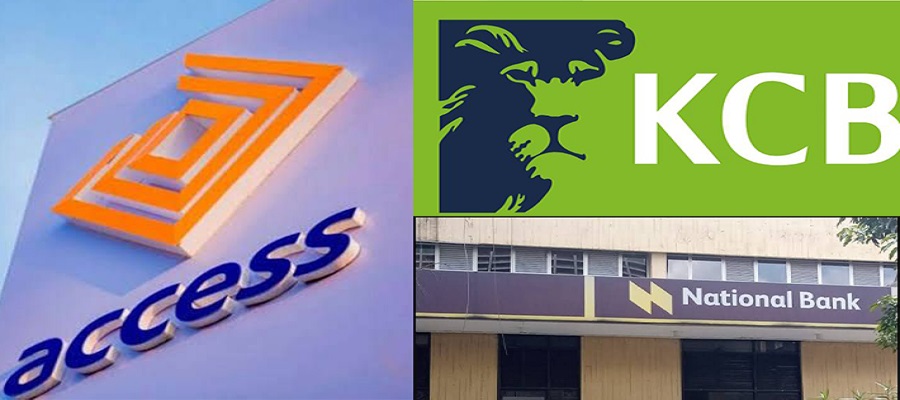E-Financial
FMBN Extends Loans to NHF Contributors

The Federal Government has assured the Federal Mortgage Bank of Nigeria (FMBN) of legislative amendments of relevant housing industry laws that will pave the way for its recapitalisation to N500 billion to enable the bank carry out its cardinal objectives.

The bank for a long time has not been able to carry out its constitutional duties of giving loan facilities to contributors of the National Housing Fund.
These laws, according to the Federal Government, include the National Housing Fund (NHF) Act, 1992 and FMBN Establishment Act, 1993 which raises hope for the housing sector as expectation is that more people, especially those who are contributors to the National Housing Fund (NHF), will get housing loan that will enable them to either buy or build their own homes.
Accordingly, it will impact the economy as more home owners will lead to increased productivity and economic activities that will create jobs for both skilled and unskilled labour in the housing sector.
Giving the Federal Government’s perspective on this recently at FMBN Management Retreat held in Abuja with the theme, ‘Transformational Innovation for Sustainable Development in Uncertain Times’ the Minister of Housing and Urban Development, Ahmed Dangiwa who was the immediate past Managing Director and Chief Executive Officer of the apex bank, promised to ensure that FMBN gets all the necessary support at the highest levels possible to deliver maximally and optimally on its mandate to Nigerians.
“As minister, I am committed to being a way-maker, facilitator and catalyst to the evolution of the bank as a modern, impactful and resilient housing finance institution that delivers on the maxim that ‘everyone deserves a home,’ the Minister said.
He noted that FMBN must be seen as a tool of service to Nigerians, tasking the staff to see their jobs and the salaries that they are paid as recompense for the services that they offer to Nigerians. “We must ensure that we offer quality customer service to Nigerians which is very important,” he said.
He charged the bank to deliver on the Federal Government’s expectations and the needs of Nigerians for affordable housing, adding that what this means is that FMBN must transform, innovate and lead a new era of massive housing development and delivery even in these difficult times of high construction costs and lower incomes.
“This requires a radically new mindset, thinking out of the box and identifying the oppourtunities that these challenges present,” he said.
Dangiwa revealed that a lot of work has been done on the review of the NHF Act and FMBN Establishment Act as they have achieved successful passage by the two chambers of the National Assembly, but presidential assent was declined.
He added that the current efforts must specifically identify the reasons for the rejection, so that appropriate steps are taken to address the concerns of the relevant stakeholders.
He urged FMBN to make greater efforts towards reducing its non-performing loan portfolio and clearance of backlog of its audited accounts, saying, “A major step in this regard is to ensure efficient processing and approval of corresponding NHF loans for all completed projects, as well as to ensure effective off-take and inter-account settlement to clean up the bank’s books,” he said.
Based on the Federal Government’s goal to create a $1trillion economy within the next 10 years, Dangiwa said the trajectory in the housing sector must move towards putting a large chunk of the goal on the table.
“In this direction, we must deliberately seek to continually increase the real estate sector contribution to the Gross Domestic Product (GDP) to fulfil its projected role as the bedrock of economic growth and wealth creation,” he added.
Tope Fasua, Special Assistant to the President on Economic Affairs, who was Guest Speaker at the retreat, said the country had potential for $200 billion investment in housing, attracting foreign investments and growing the economy by double digits.
Fasua noted that the big challenge in the sector has been the growing size of dead capital in the country which, according to him, is worth over $900 billion, adding that with artificial intelligence, all land globally will be documented and optimised.
Madu Hamman, FMBN’s managing director, said the institution has been providing mortgage finance and facilitating home ownership for low and medium-income earners through its various schemes and products. He noted, however, that these efforts are not enough to meet the growing demand for shelter and expectations of the Nigerian people.
“The housing sector has faced a severe shortage of and corresponding high cost of building materials that has negatively impacted the delivery of affordable housing in the country,” he said, adding, “these factors demand that we rethink our strategies, policies, and processes to ensure quality, affordable, and sustainable housing for Nigerians.”
E-Financial
CBN Pumps in Additional $150m into Forex Market to Safeguard Naira

Central Bank of Nigeria (CBN) has reportedly injected $150 million into the foreign exchange market at the beginning of the week to keep the naira safe under pressure.

With sustained forex market intervention, a slew of analysts have formed a consensus that the exchange rate would trade range-bound in the second quarter.
Last week, the Apex Bank sold $635 million to authorized dealer banks in FX market amidst efforts to strengthen liquidity levels in the market.
A potential slowdown in US dollar supply could trigger negative exchange rate movement, according to analysts.
Again, the naira faced another round of demand pressure in the official window as offshore investors continued to exit positions in naira assets.
To stem the negative impacts of unusually high demand for US dollars, the CBN intervened with a sale of $150 million at rates between $/₦1,593.20 and $/₦1,623. Throughout the session, the USD/NGN pair moved within a range of $/₦1,593.10 to $/₦1,630, AIICO Capital Limited reported.
Data from the CBN showed that gross external reserves fell to $38 billion in the absence of additional inflows and a slowdown in oil FX receipts.
In the global commodity market, oil prices fell on Monday despite some positive signals, including exemptions for electronics from U.S. tariffs and a sharp rebound in China’s March crude imports.
These factors were overshadowed by ongoing fears that the prolonged U.S.-China trade war could hurt global economic growth and weaken fuel demand. Brent crude dropped 42 cents, or 0.65%, to $64.34 a barrel, while U.S. West Texas Intermediate (WTI) crude slid 53 cents, or 0.9%, to $60.97.
Meanwhile, gold prices declined over 1% after reaching a new record earlier in the day.
Improved risk sentiment following the tariff exemptions on smartphones and computers contributed to the dip. Spot gold fell 1.1% to $3,200.11, while U.S. gold futures declined 0.9% to $3,216.20. #CBN Injects Additional $150m into FX Market to Safe Naira First Holdco Falls below N1 Trillion in Equities Market
E-Financial
Kenyan CBN Okays Access Bank Full Acquisition Of NBK

Access Bank, a subsidiary of Nigeria’s Access Holdings Plc, has received final regulatory approvals to acquire 100 per cent shareholding of the National Bank of Kenya (NBK), marking a significant milestone in the lender’s strategic expansion across East Africa.

The Central Bank of Kenya (CBK) confirmed on Monday that it granted approval for the transaction on April 4, 2025, under Section 13(4) of the Banking Act.
In a coordinated move, Kenya’s Cabinet Secretary for the National Treasury and Economic Planning also gave the green light on April 10, 2025, pursuant to Section 9 of the same Act.
Access Bank is acquiring NBK through a full purchase of shares from KCB Group Plc, which has held complete ownership of the bank since 2019.
As part of the acquisition, selected assets and liabilities of NBK will be transferred to KCB Bank Kenya Limited, a wholly owned subsidiary of KCB Group.
The CBK and the Treasury have both approved this transfer as an integral component of the broader transaction.
According to CBK, the acquisition will be finalized upon the full completion of agreed terms between Access Bank and KCB Group. Once completed, Access Bank will officially own and operate NBK, positioning itself as a stronger competitor within Kenya’s dynamic financial services landscape.
The acquisition of NBK aligns with Access Bank’s long-term strategy to scale operations in East Africa and deepen its presence in Kenya, one of the continent’s most competitive banking markets.
The move is expected to enhance Access Bank’s capacity to deliver innovative digital and financial solutions to a broader customer base in the region.
The CBK welcomed the acquisition, stating that the transaction is consistent with its objective to promote the development of a sound, stable, and inclusive financial sector.
The regulator expressed confidence in Access Bank’s capability to ensure continuity of services at NBK while strengthening financial resilience in the market.
“The acquisition will enable Access Bank to leverage NBK’s infrastructure and customer base, thereby enhancing service delivery and financial inclusion in Kenya,” the CBK noted.
Access Bank’s expansion reflects a broader trend of cross-border banking consolidation in Africa, as regional financial institutions seek to build scale, diversify risk, and foster long-term growth across key markets.
E-Financial
SEC Says CBEX, other Unregistered Digital Platforms are Illegal

Securities Exchange Commission (SEC) has charged all fintechs, cryptocurrency firms and exchanges to register with the commission. This is coming weeks after President Bola Tinubu assented the Investments and Securities Act 2024 into law, making its provisions officially enforceable.

Dr Emomotimi Agama, DG, SEC
“If you are not registered with the SEC, you are illegal,” Dr Emomotimi Agama, director general, SEC, said during a virtual engagement that held yesterday.
“Registration is the hallmark of regulation. If there is no registration, there is a violation. Hence, we all must educate ourselves and clear any doubt in the process of building a strong Fintech ecosystem.”
The desire to fast-track digital asset licensing and registration is slowly becoming a core mandate for Agama in 2025.
This turnaround is quite significant from 2021, when the rise of cryptocurrency was stalled by several bans, hurting the growth of the sector.
However, the SEC boss is determined to avoid sharp practices and safeguard investors from pump and dump schemes, ponzi schemes and volatile meme coins introduced by celebrities.
Last year, the commission warned the general public against meme coins introduced by African singer and songwriter, Davido.
For the digital asset providers seeking licensing who have not yet gotten a response, Agama noted that work has been happening underground.
“We have observed some significant issues which we need to take care of. Some of the new applications need a level 3 due diligence before getting a provisional license. It must have taken longer than necessary. However, what we are trying to do is to make sure that every gap is covered.”

 E-Business2 days ago
E-Business2 days agoNITDA Warns Against Fake Google Play Store

 General News2 days ago
General News2 days agoLagos Commences Integration of NIN with State Single Social Register

 News2 days ago
News2 days agoNOA Uncovers Fraud by Banks, Universities in Students Loan Scheme

 E-Financial2 days ago
E-Financial2 days agoUBA Redefines Banking with Next-Gen PoS Terminals and Revamped MONI App

 E-Financial2 days ago
E-Financial2 days agoAfrica Loses $88.6Bn Yearly to Corruption- ECOWAS

 E-Financial2 days ago
E-Financial2 days agoNIBSS Heads to Court to Recover N4Bn Lost due to System Glitch

 E-Financial2 days ago
E-Financial2 days agoSEC Bans Unregistered Digital Asset Exchanges, Online Forex Platforms

 General News2 days ago
General News2 days agoNigeria Records $6.83Bn Balance of Payments Surplus in 2024 Amid Economic Reforms

















